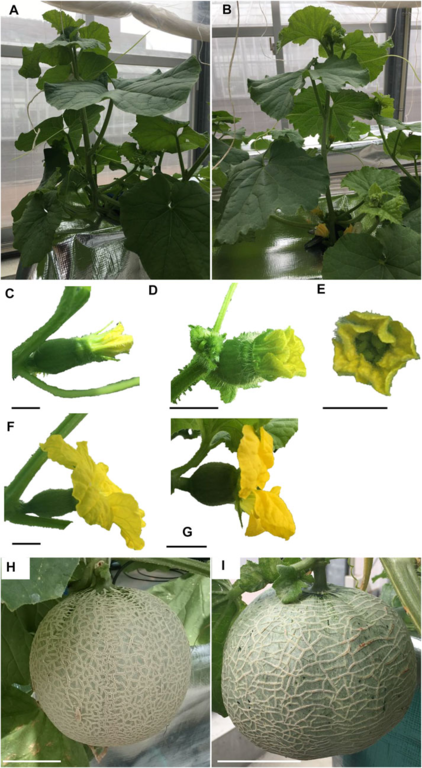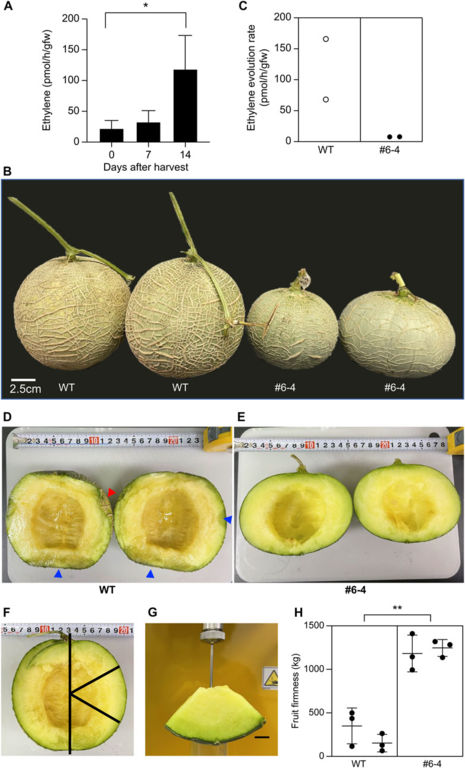・We attempted to extend the shelf-life of the Japanese luxury melon (Cucumis melo var. reticulatus, ‘Harukei-3’) via modification of the ethylene synthesis pathway with the genome editing technology, CRISPR/Cas9 system.
・The results show that CmACO1 knockout via CRISPR/Cas9 extended the shelf-life of melon.
・Genome editing technology would reduce food loss and contribute to food security because the crops via genome editing can be considered non-genetically modified crops.
Abstract
We aimed to introduce a mutation to the ACC oxidase gene, ACO, using the CRISPR/Cas9 system to extend shelf-life in the climacteric type melon “Earl’s favourite Harukei-3”, which is used as a parental line for breeding exclusive Japanese melon cultivars that represent important export crops. The Melonet-DB (https://melonet-db.dna.affrc.go.jp/ap/top) showed that the melon genome had the five CmACOs and the gene CmACO1 predominantly expressed in harvested fruits. From this information, CmACO1 was expected to be a key gene for shelf-life in melons. Based on this information, the CmACO1 was selected as the target of the CRISPR/Cas9 system and introduced the mutation. The final product of this melon did not have any exogenous genes. The mutation was inherited for at least two generations. In the T2 generation, the fruit phenotypes 14 days after harvest were as follows: ethylene production was reduced to one-tenth that of the wild type, pericarp colour remained green, and higher fruit firmness. Early fermentation of the fresh fruit was observed in the wild-type fruit but not in the mutant. These results show that CmACO1 knockout via CRISPR/Cas9 extended the shelf-life of melon.
Benefit
Because the genome editing technology would not leave the exogenous genes in the final crop products, the crops via genome editing can be considered non-genetically modified crops. We demonstrated that it is possible to extend the shelf-life of the Japanese luxury melon (Cucumis melo var. reticulatus, ‘Harukei-3’) via modification of the ethylene synthesis pathway with the genome editing technology, CRISPR/Cas9 system which presents a promising solution because they can directly modify the target genes of elite strains and produce a final line without any exogenous genes.
Market Application
The results of this study could contribute to the Agricultural field in the following three ways:
1) improving shelf-life, which helps farmers economically and reduces food waste;
2) providing a method for plant breeders to quickly and efficiently produce desired mutations in melon; and
3) producing non-GM crops with desirable traits, circumventing pitfalls associated with G.M. produce.
Publications
https://www.frontiersin.org/articles/10.3389/fgeed.2023.1176125/full


